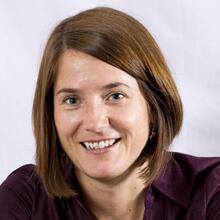The 55th annual meeting of the College Theology Society at the University of Notre Dame this past weekend continued the necessary work begun last month by the Notre Dame community and their commencement honorees in claiming and expanding the common ground for a unified Catholic witness to a more just world without disregarding a variety of differences within the American Catholic Church.

In a Pentecost moment that preceded the academic society’s liturgical celebration of the feast in the Basilica of the Sacred Heart, more than 70 theologians of different ages, fields of study, geographic regions, educational institutions and ethnicities stepped out of spaces of fear and mistrust, and spoke instead in the tongue of their own experiences about what they see as the gifts and challenges of race and diversity in the undergraduate classroom. As part of a first-time open forum on “Race, Diversity and Pedagogy,” facilitated by co-editors of and contributors to the award-winning CTS collection of essays, Interrupting White Privilege: Catholic Theologians Break the Silence(Orbis Books 2007), the participants illuminated important common ground at the heart of an often emotionally-charged and polarizing topic.
Small-group conversation revealed that professors desire to understand more fully the way that visible diversities such as ethnicity or disability, as well as invisible diversities such as sexual orientation or socio-economic status have an impact on their self-understandings and their professional responsibilities. They want to ascertain students’ perspectives in order to avoid top-down strategies that often diffuse but do not engage the tension and conflict that diversity often sparks on college campuses. All shared a commitment to make the theological classroom a safe environment for students and professors alike to explore intellectually and spiritually the demands of citizenship and discipleship in an increasingly diverse world and church.
In implicitly engaging Paul’s famous missive to the Corinthians regarding many gifts but the same Spirit, CTS members embodied the mandate of their theological vocation: faith seeking understanding.
Maureen O'Connell







